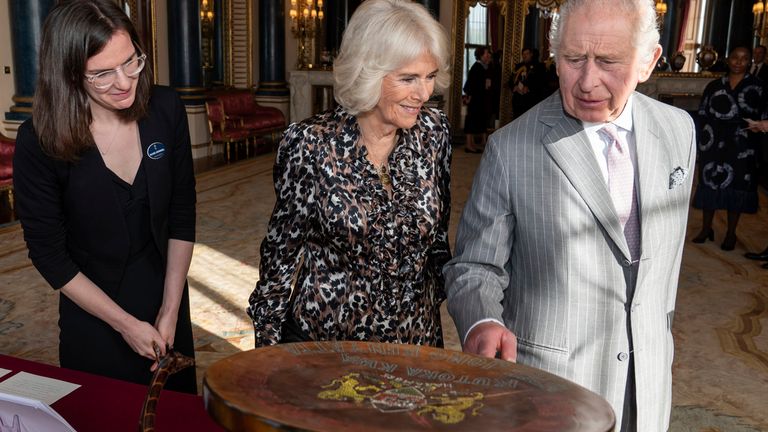
The niece of a Kenyan woman allegedly murdered by one or more British soldiers has called on the King to act on her case as he visits the African country.
Agnes Wanjiru went missing in her hometown of Nanyuki in 2012 and two months later her body was found in a septic tank of a hotel.
She had stab wounds to her abdomen and a 2019 inquest concluded she was murdered by one or more British soldiers.
Before the King and Queen arrived in Kenya for the start of their five-day state visit to Kenya on Monday, Ms Wanjiru’s 19-year-old niece Esther Njoki wrote the King a letter calling on him to help bring about justice and closure.
Ms Njoki, who lives in an informal settlement in Nanyuki, close to the British Army Training Unit (BATUK) base in the Nyati barracks, also called on the King to visit her family – herself, her mother (who is Ms Wanjiru’s sister Rose), her cousin Stacy, and Ms Wanjiru’s surviving daughter – who was just five months old when her mother was killed.
She wrote in a letter to the monarch: “Your Majesty, we ask that you come to our aid by bringing attention and urgency to the case of Agnes Wanjiru’s murder.
“Please let not Agnes’s daughter Stacey grow up in a world where it seems that justice is elusive not only for the poor but also for people that look like her.”
Far from a symbolic gesture, Ms Njoki’s letter is a significant move that demands actions from the commander-in-chief of the British crown forces.
The British government maintains that the jurisdiction for the investigation lies with the Kenya Police Service. The inquest found that there were signs of a potential cover-up and limited investigations in the immediate aftermath.
But 11 years on, the men accused of her murder are still walking free.
While Buckingham Palace has said that the royal visit will acknowledge “painful aspects of the UK and Kenya’s shared history”, the King and Queen have no scheduled plans to visit Nanyuki during their trip.
Rather than the £70mn BATUK facility in Nanyuki’s Nyati barracks, they will be shown a display of British-Kenyan defence collaboration in beach exercises at the Mtongwe Naval base in Mombasa.
Other events in Kenya have also enflamed discontent about the country’s post-colonial relationship with Britain.
A 2021 fire on a British army training site in Lolldaiga, Laikipia moved 5,000 complainants to say it impacted their health, livestock and environment.
The British High Commission in Kenya told Sky News that “no property outside of the Lolldaiga Hills Ranch was damaged by the fire and no large animals were killed.”
That has not quelled protests and demands for compensation.
“There is a feeling that colonialism is still alive and well, and therefore the general feeling is that there needs to be a change,” says Kenyan political scientist, Professor Peter Kagwanga.
He adds: “Let us be clear that compensations have been done in a number of cases but there has not been unequivocal apologies or denunciation of what has happened.
“Therefore Kenyans feel that they are second-rate citizens, the so-called children of a lesser God compared to their British counterparts – and as a result, that is adding to the cumulative grievances against BATUK in Nanyuki.”
In the hours before the King and Queen’s arrival, the expression of these grievances is being stifled.
Kenyan authorities are shutting down protests in Nairobi and have blocked a news conference intended to air allegations of human rights and environmental abuses by British troops in the country.
Even as the grieving Esther links justice with the King’s visit, Kenyan authorities are practising public suppression just to ensure it happens without opposition.











